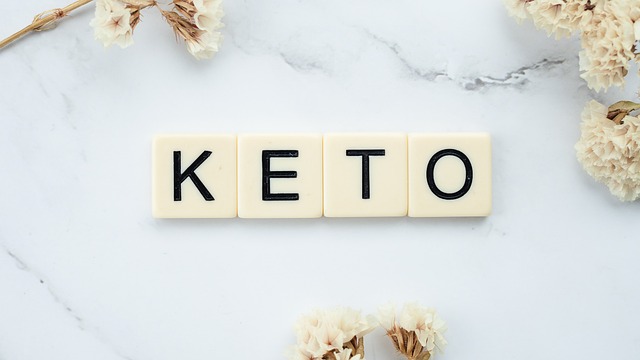Have you ever wondered if there’s a way to lose weight while also improving your health? Well, let me tell you about the keto diet and how it could potentially help you achieve both of these goals. One interesting aspect of the keto diet is its impact on blood pressure. In this article, we’ll dive into the details of how following a ketogenic eating plan may potentially lead to lower blood pressure levels.
When you hear the word “diet,” you may naturally associate it with weight loss. And that’s exactly what the keto diet aims to do. By drastically reducing your carbohydrate intake and increasing your consumption of healthy fats, the keto diet puts your body into a metabolic state called ketosis. This state allows your body to burn fat for fuel instead of carbohydrates, leading to weight loss. But what does this have to do with blood pressure?
Well, several studies suggest that following a keto diet may have positive effects on blood pressure. It’s believed that the low carbohydrate intake helps to regulate insulin levels, which in turn can promote healthy blood pressure levels. In addition, the keto diet often includes foods that are rich in nutrients like potassium, which is known to have blood pressure-lowering effects. So, if you’re interested in learning more about how a keto diet plan could potentially help with blood pressure, keep reading.

What is a Keto Diet?
A ketogenic diet, commonly known as a keto diet, is a low-carbohydrate, high-fat diet that has gained popularity in recent years. The primary goal of the keto diet is to shift the body’s metabolism from using carbohydrates for energy to using stored fats. By significantly reducing carbohydrate intake and increasing the consumption of healthy fats, the body enters a state of ketosis, where it produces ketones as an alternative fuel source.
Definition of a Keto Diet
A keto diet typically consists of a macronutrient ratio of approximately 70% fat, 20% protein, and 10% carbohydrates. This implies that the diet is low in carbohydrates, moderate in protein, and high in healthy fats. By limiting carbohydrate intake, the body is forced to burn fat for energy, which can lead to weight loss.
How a Keto Diet Works
When you consume carbohydrates, your body breaks them down into glucose, which is the primary source of energy for your cells. However, on a keto diet, the intake of carbohydrates is significantly reduced. As a result, your body enters a state of ketosis, where it doesn’t have enough glucose for energy.
During ketosis, your liver begins to produce ketones from stored fat. Ketones then become the primary source of energy for your brain and muscles. This shift in fuel source allows the body to burn fat more efficiently, leading to weight loss and potentially other health benefits.
Benefits of a Keto Diet
Weight Loss
One of the most significant benefits of a keto diet is its potential for weight loss. Since the body relies on stored fat as its primary source of energy in ketosis, it may lead to a decrease in overall body weight. Additionally, the reduction in carbohydrate intake can also reduce water retention, leading to initial rapid weight loss.
Improved Blood Pressure
High blood pressure, or hypertension, is a prevalent health condition that affects millions of people worldwide. It is a significant risk factor for heart disease, stroke, and other cardiovascular complications. Research has shown that a keto diet may have a positive impact on blood pressure levels.
Reduced Inflammation
Inflammation is a natural response by the body to protect itself from injury or infection. However, chronic inflammation has been linked to various health conditions, including heart disease, diabetes, and obesity. The keto diet, with its emphasis on whole foods and healthy fats, may help reduce inflammation in the body.
Understanding Blood Pressure
Definition of Blood Pressure
Blood pressure refers to the force that blood exerts against the walls of your blood vessels as the heart pumps it around the body. It is measured using two numbers: the systolic pressure (the top number) and the diastolic pressure (the bottom number). Systolic pressure measures the force when the heart contracts, while diastolic pressure measures the force when the heart is at rest between beats.
Types of Blood Pressure
There are two main types of blood pressure: primary (essential) hypertension and secondary hypertension. Primary hypertension is the most common type and has no identifiable cause. On the other hand, secondary hypertension is caused by an underlying condition, such as kidney disease, hormonal disorders, or medication side effects.
Normal vs. High Blood Pressure
A normal blood pressure reading is typically considered to be around 120/80 mmHg. High blood pressure, also known as hypertension, is defined as having consistent readings of 130/80 mmHg or higher. It is essential to monitor your blood pressure regularly, as high blood pressure can increase the risks of cardiovascular diseases.
Link Between Keto Diet and Blood Pressure
Research Studies
Several studies have explored the potential link between a keto diet and blood pressure. One study published in the Journal of the American College of Cardiology found that a low-carbohydrate ketogenic diet led to significant reductions in both systolic and diastolic blood pressure levels. Another study published in the journal Nutrients showed similar results, with participants on a keto diet experiencing improvements in blood pressure.
Mechanism of Action
The precise mechanism of how a keto diet affects blood pressure is not yet fully understood. However, researchers believe that the ketogenic diet’s ability to lower insulin levels and reduce inflammation in the body may contribute to improved blood pressure. Additionally, the weight loss associated with a keto diet may also play a role in blood pressure reduction.
Effectiveness of Keto Diet in Lowering Blood Pressure
While research suggests a potential link between a keto diet and improved blood pressure, it is important to note that individual results may vary. It is always recommended to consult with a healthcare professional before making any significant changes to your diet, especially if you have pre-existing conditions or are taking medication to manage your blood pressure.

Potential Risks and Considerations
Keto Flu
As your body adjusts to the keto diet, you may experience side effects commonly known as “keto flu.” These can include fatigue, dizziness, headaches, and irritability. To alleviate these symptoms, it is important to stay hydrated, consume enough electrolytes, and gradually transition into the diet.
Electrolyte Imbalance
The reduction in carbohydrate intake on a keto diet can lead to changes in electrolyte balance. It is crucial to ensure adequate intake of electrolytes, such as sodium, potassium, and magnesium, to prevent imbalances. This can be achieved through a well-rounded and balanced keto meal plan.
Nutrient Deficiencies
Restricting carbohydrates may have an impact on the variety of nutrients you consume. It is important to focus on nutrient-dense foods and incorporate a wide range of fruits and vegetables to ensure you’re getting an adequate intake of vitamins and minerals. Additionally, considering supplementation may be beneficial to fill in any nutritional gaps.
Tips for Incorporating a Keto Diet
Consult with a Healthcare Professional
Before starting a keto diet, it is highly recommended to consult with a healthcare professional or a registered dietitian. They can provide personalized guidance based on your individual health needs and help monitor your progress.
Gradual Transition
To minimize the potential side effects, it may be helpful to gradually transition into a keto diet rather than making sudden and drastic changes. Gradually reducing your carbohydrate intake can help your body adapt to the new fuel source more smoothly.
Meal Planning
Meal planning and preparation are key to success on a keto diet. By planning your meals in advance, you can ensure you’re consuming a well-rounded and balanced diet that meets your nutritional needs. This can also help you resist the temptation of reaching for unhealthy, carb-rich foods.

Other Lifestyle Factors for Blood Pressure Control
While a keto diet may have potential benefits for blood pressure control, it is important to remember that diet alone is not the sole factor influencing blood pressure. Incorporating additional lifestyle changes can further support blood pressure management:
Regular Exercise
Engaging in regular physical activity, such as aerobic exercises, strength training, or yoga, can help lower blood pressure levels. Aim for at least 150 minutes of moderate-intensity exercise or 75 minutes of vigorous-intensity exercise per week.
Stress Management
Chronic stress can contribute to high blood pressure. Finding healthy ways to manage stress, such as practicing mindfulness meditation, deep breathing exercises, or engaging in hobbies, can help reduce blood pressure levels.
Limiting Sodium Intake
Excessive sodium consumption is known to contribute to high blood pressure. Be mindful of your sodium intake by reading food labels, cooking at home using fresh ingredients, and opting for low-sodium alternatives.
Getting Adequate Sleep
Adequate sleep plays a crucial role in maintaining overall health, including blood pressure regulation. Aim for 7-9 hours of quality sleep each night to support healthy blood pressure levels.
Success Stories and Testimonials
Real-life Experiences of Individuals with Improved Blood Pressure on a Keto Diet
Many individuals have reported success in managing their blood pressure through a keto diet. Personal testimonials highlight significant reductions in blood pressure readings, often accompanied by weight loss and overall improved health. While these stories are inspiring, it’s important to approach them with caution and remember that everyone’s experience may differ.
Frequently Asked Questions
Can Everyone Follow a Keto Diet?
While a keto diet can be beneficial for many individuals, it may not be suitable for everyone. Individuals with certain medical conditions, such as pancreatitis, liver disease, or gallbladder problems, should avoid or modify the keto diet. Additionally, pregnant or breastfeeding women should consult with their healthcare provider before starting a keto diet.
Can Keto Diet be Used as a Sole Treatment for Blood Pressure?
A keto diet should not be considered as a sole treatment for high blood pressure. It should be used in conjunction with other lifestyle modifications, such as regular exercise, stress management, and medication if necessary. Always consult with your healthcare professional to develop a comprehensive treatment plan.
Are There Any Long-Term Effects on Blood Pressure?
The long-term effects of a keto diet on blood pressure are still being studied. It is essential to monitor your blood pressure regularly and work closely with your healthcare provider to ensure it remains within a healthy range. Individual responses to the diet may vary, and it is important to make adjustments as needed.
Conclusion
The keto diet has shown promising potential in its impact on blood pressure levels. With its emphasis on healthy fats, reduced carbohydrate intake, and potential weight loss, a keto diet may be a valuable addition to a comprehensive blood pressure management plan. However, it is essential to approach any diet or lifestyle modification with caution and consult with a healthcare professional to ensure suitability and proper monitoring. With personalized guidance, a keto diet may have a positive impact on your overall health and well-being.




